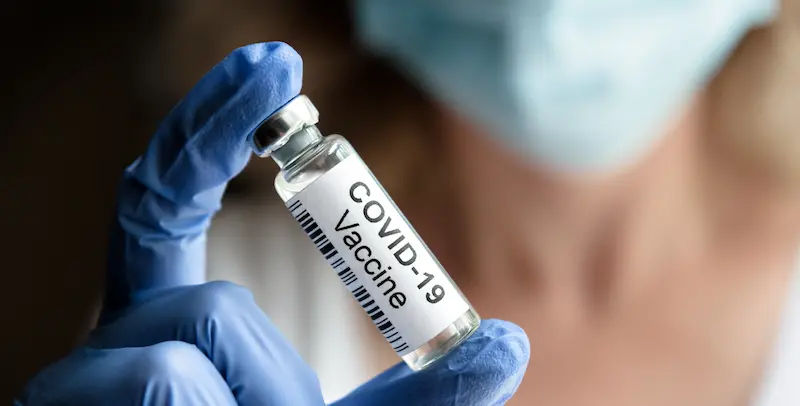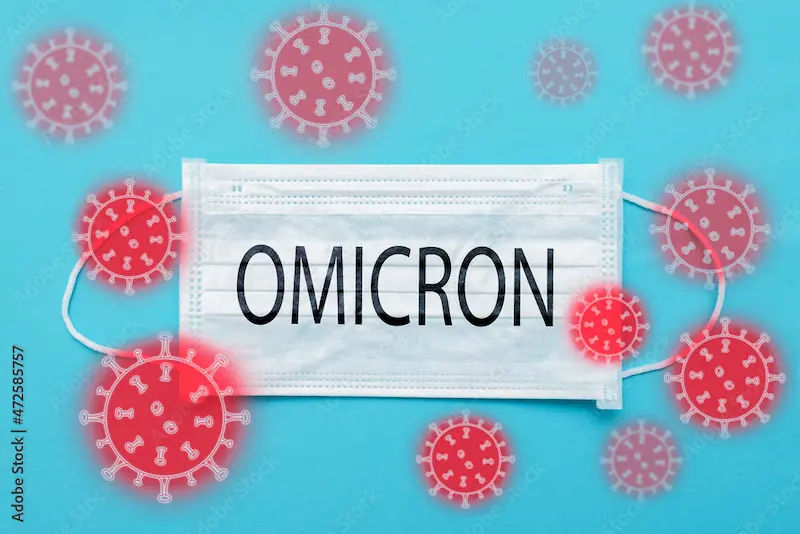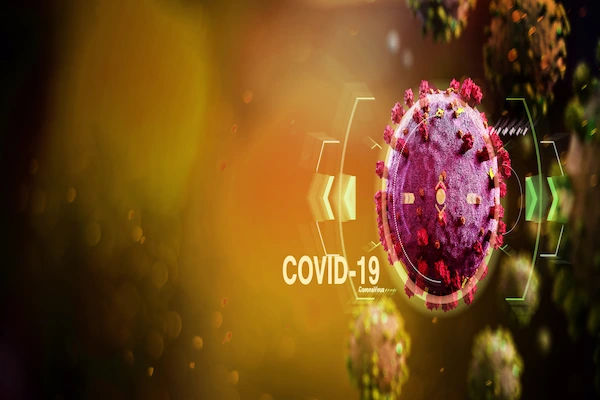Omicron Variant: Your Essential Guide to Symptoms, Risks, and Prevention
Get up-to-date information on the Omicron COVID-19 variant: symptoms, transmissibility, vaccine effectiveness, treatment options, and prevention strategies.


Introduction
The emergence of the Omicron variant marked a significant turning point in the COVID-19 pandemic. First identified in late 2021, this new variant quickly demonstrated an unprecedented ability to spread, leading to massive waves of infection across the globe. But as time has passed, our understanding of Omicron has evolved. What started as a single strain has now branched into a large family of subvariants, each with its own characteristics. This guide cuts through the noise to provide a clear, up-to-date overview of everything you need to know about the Omicron variant. We will explore its distinctive symptoms, understand its transmissibility, analyse the effectiveness of vaccines, and outline the best strategies for protection and treatment in today's context. Whether you're seeking information for yourself or your family, this article will equip you with the knowledge to navigate the ongoing reality of COVID-19.
What Exactly is the Omicron Variant?
Omicron, scientifically known as B.1.1.529, is a variant of the SARS-CoV-2 virus that causes COVID-19. It was designated a variant of concern (VOC) by the World Health Organisation (WHO) in November 2021 due to its large number of mutations, many of which were located on the spike protein—the part of the virus that binds to human cells.
The Evolution from Delta to Omicron
Omicron did not evolve directly from the previously dominant Delta variant. Instead, it emerged from a different branch of the SARS-CoV-2 family tree. This surprising evolutionary jump meant it was significantly different from the viruses targeted by the original vaccines and previous infections, giving it an advantage in infecting people, even those with some existing immunity.
Key Mutations and What They Mean
The Omicron variant carries over 50 mutations, with more than 30 on the spike protein alone. These mutations are primarily responsible for two key features:
Increased Transmissibility: The mutations allow the virus to bind more tightly and efficiently to human ACE2 receptors, making it easier to infect people.
Immune Evasion: The changes in the spike protein make it harder for antibodies generated from previous vaccination or infection (especially from older variants) to recognise and neutralise the Omicron virus.
Consult a Specialist for the best advice
Recognising Omicron Symptoms: How It Differs
One of the most notable shifts with the Omicron variant has been its symptom profile. While it can still cause severe illness, especially in vulnerable populations, its presentation often differs from earlier strains.
Most Common Symptoms
The classic symptoms of COVID-19, such as loss of smell and taste and severe shortness of breath, became less common with Omicron. The Omicron variant symptoms often resemble those of a common cold or seasonal flu, including:
- Sore throat
- Runny nose
- Headache
- Persistent cough (typically dry)
- Fatigue
Less Common but Serious Symptoms
It is crucial to remain vigilant for signs of severe disease. Seek medical attention if you experience:
- Difficulty breathing or shortness of breath
- Chest pain or pressure
- Confusion or inability to stay awake
- Pale, gray, or blue-coloured skin, lips, or nail beds
If you experience these severe symptoms, it is important to consult a doctor immediately. You can book a physical visit or connect with a healthcare professional online through Apollo24|7 for prompt evaluation.
Omicron vs. Delta vs. Original Strain: A Symptom Comparison
How Contagious is Omicron? Understanding Transmission
Omicron is significantly more contagious than previous variants like Delta. Its shorter incubation period—the time from exposure to developing symptoms—is estimated to be around 2-3 days, compared to 4-5 days for Delta. This faster replication allows infected individuals to shed the virus more quickly, contributing to explosive spread within communities. The primary mode of transmission remains respiratory droplets and aerosols, emphasising the continued importance of precautions in crowded, poorly ventilated indoor spaces.
Severity of Illness: Is Omicron Milder?
Multiple studies have shown that Omicron generally causes less severe disease on an individual basis compared to the Delta variant. The risk of hospitalisation, intensive care admission, and death is lower for most people infected with Omicron. However, it is critical to understand that "milder" does not mean "mild." Its extreme transmissibility led to such high case numbers that healthcare systems were still strained due to the sheer volume of patients.
Factors Influencing Severity
The severity of an Omicron infection is heavily influenced by individual factors:
- Vaccination Status: Vaccinated and boosted individuals have a dramatically lower risk of severe outcomes.
- Prior Infection: Previous COVID-19 infection provides some protection, but vaccination after infection (hybrid immunity) offers the strongest shield.
- Age and Underlying Health Conditions: Older adults and individuals with compromised immune systems or chronic conditions (e.g., diabetes, heart disease) remain at higher risk.
Vaccine and Booster Efficacy Against Omicron
The question of vaccine efficacy against Omicron has been central to the pandemic response. The initial two-dose vaccine regimen provided substantial protection against severe disease and death but showed reduced effectiveness in preventing symptomatic infection due to immune evasion.
The Critical Role of Boosters
Booster doses (third and subsequent doses) have proven to be a game-changer. They significantly raise antibody levels, restoring a high level of protection against severe illness, hospitalisation, and death. Updated bivalent and monovalent boosters, designed to target both the original virus and Omicron subvariants, provide even broader and more durable protection.
Navigating Testing for Omicron
Are Rapid Antigen Tests Effective?
Yes, rapid antigen tests are effective at detecting Omicron, especially when a person is infectious and has a high viral load. They are a valuable tool for quick screening. For the most accurate result, it is recommended to test multiple times over 48 hours if you have symptoms or have been exposed.
When to Consider a PCR Test
PCR tests remain the gold standard for COVID-19 detection due to their high sensitivity. They can detect the virus even at lower viral loads and are often used for confirmation. If you have symptoms but a negative rapid test, or if you require an official test result for travel or medical procedures, a PCR test is advisable. Apollo24|7 offers convenient home collection for PCR tests, allowing you to get tested safely and comfortably.
Effective Treatment Strategies for Omicron Infection
Most healthy individuals with a mild Omicron infection can recover at home with rest, hydration, and over-the-counter medications to manage fever and pain. For those at higher risk of severe disease, antiviral medications like Paxlovid (nirmatrelvir and ritonavir) and Remdesivir are effective options, but they must be started early in the course of illness. If you test positive and have risk factors, consult a doctor online with Apollo24|7 to see if you are eligible for these treatments.
Protecting Yourself and Others: Updated Prevention Tips
The core principles of prevention still hold true but have been refined for the Omicron era.
- Vaccination and Boosters: This is the single most effective layer of protection.
- Masking: High-quality, well-fitting masks (N95, KN95, KF94) remain highly effective in indoor public settings.
- Ventilation: Improving indoor air quality through open windows, air filters, and avoiding crowded, stuffy spaces reduces risk.
- Testing and Isolation: Test if you have symptoms or before gatherings. Isolate if you test positive to prevent spreading the virus to others.
The Future with Omicron: What to Expect
SARS-CoV-2, like all viruses, will continue to evolve. Omicron and its sub-lineages are likely to remain the dominant circulating variants for the foreseeable future. The pandemic phase has ended, but the virus is now endemic, meaning it will continue to circulate at a baseline level with seasonal fluctuations. The focus has shifted to managing long-term risk through vaccination updates, accessible treatments, and public awareness, much like we do with the flu.
Conclusion
The arrival of the Omicron variant fundamentally changed the trajectory of the COVID-19 pandemic. Its high transmissibility and ability to partially evade immunity led to a new phase where widespread infection occurred, but with a lower individual risk of severe disease for the vaccinated and healthy. Understanding the distinct symptoms of the Omicron variant, the paramount importance of booster shots, and the continued value of smart prevention strategies empowers us to live our lives more safely. The virus is now a permanent part of our landscape, but it is one we are increasingly equipped to manage. Staying informed, staying vaccinated, and seeking timely medical advice when needed are the best tools we have to protect our health and well-being. If you have specific concerns about your risk level or symptoms, always consult a healthcare professional for personalised guidance.
Consult a Specialist for the best advice
Consult a Specialist for the best advice

Dr. Harshendra Jaiswal
General Physician/ Internal Medicine Specialist
12 Years • MBBS , MD (General medicine)
Kolkata
108 DHANA DHANVANTARI Clinic, Kolkata
(25+ Patients)

Dr Syed Mateen Pasha
General Physician
2 Years • MBBS
Bengaluru
PRESTIGE SHANTHINIKETAN - SOCIETY CLINIC, Bengaluru

Dr Aakash Andgi
General Physician/ Internal Medicine Specialist
9 Years • MBBS MD
Bengaluru
Apollo Clinic, JP nagar, Bengaluru

Dr. Anand Ravi
General Physician
2 Years • MBBS
Bengaluru
PRESTIGE SHANTHINIKETAN - SOCIETY CLINIC, Bengaluru

Dr. Vivek D
General Physician
4 Years • MBBS
Bengaluru
PRESTIGE SHANTHINIKETAN - SOCIETY CLINIC, Bengaluru
Consult a Specialist for the best advice

Dr. Harshendra Jaiswal
General Physician/ Internal Medicine Specialist
12 Years • MBBS , MD (General medicine)
Kolkata
108 DHANA DHANVANTARI Clinic, Kolkata
(25+ Patients)

Dr Syed Mateen Pasha
General Physician
2 Years • MBBS
Bengaluru
PRESTIGE SHANTHINIKETAN - SOCIETY CLINIC, Bengaluru

Dr Aakash Andgi
General Physician/ Internal Medicine Specialist
9 Years • MBBS MD
Bengaluru
Apollo Clinic, JP nagar, Bengaluru

Dr. Anand Ravi
General Physician
2 Years • MBBS
Bengaluru
PRESTIGE SHANTHINIKETAN - SOCIETY CLINIC, Bengaluru

Dr. Vivek D
General Physician
4 Years • MBBS
Bengaluru
PRESTIGE SHANTHINIKETAN - SOCIETY CLINIC, Bengaluru
More articles from Covid
Frequently Asked Questions
How long is the Omicron variant contagious?
Most people with Omicron are contagious for about 5-10 days. You are most infectious in the 1-2 days before symptoms start and the 2-3 days after. The CDC recommends isolating for at least 5 days after a positive test or symptom onset.
What is the latest Omicron subvariant?
The virus is constantly evolving. As of 2024, lineages derived from the XBB strain, such as EG.5, have been dominant. It's best to check updates from reliable sources like the WHO or your national health authority for the most current information.
Are the new COVID boosters effective against current variants?
Yes, the updated monovalent COVID-19 boosters are designed to provide better protection against the Omicron-derived variants that are currently circulating. They are highly effective at preventing severe illness, hospitalisation, and death.
How can I tell if I have Omicron or a cold?
It is very difficult to tell based on symptoms alone because they overlap significantly. The only way to know for sure is to take a COVID-19 test. If you have cold-like symptoms, it's prudent to test to avoid unknowingly spreading COVID-19.
What should I do if I test positive for Omicron?
Isolate yourself from others, inform your close contacts, rest, and stay hydrated. Monitor your symptoms. If you are in a high-risk group or your symptoms worsen (e.g., trouble breathing), contact a doctor to discuss potential treatment options like antivirals.




.webp)